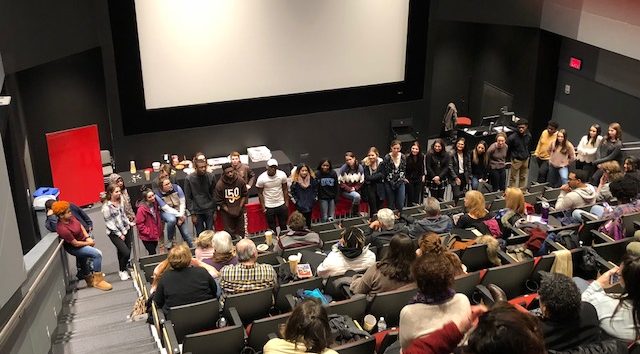Two quotes jumped out to me when reading Cameraperson Director’s Statement.
One being:
“The people I film are in immediate and often desperate material need, but I offer little to nothing material”
And two being:
“My work requires trust demands intimacy and entail total attention. To both me and the people i film it often feels like a friendship or family, but it is something different”
After hearing my classmate read this outline, I had to stop for a second and really take in the significant of these words. To offer nothing to someone who is suffering, but a platform to be heard is difficult to digest but a true part of most documentaries.
Most documentarians, do not fix the issues that they are portraying, whether it has to do with overall feasibility or resources it is just not possible. That is what makes documentary important because it can address the issues that we must come together to fix. Documentary is not the solution, it’s a platform for it and mechanism to bring about change.
The second quote also stuck out to me because the people who share there story with you are entrusting you to be truthful and respectful. There not just the subjects of your film they are people. The relationship you build with them is significant on and off the camera.

These ethical dilemmas are very similar to those that stood out to me as well. It is hard to know if documentarians are directly the solution, or if their actions are an indirect path to others’ solutions. While I understand that they are not taking direct action, I do think documentaries are the solution in a way; I would consider them less a path for further action and more a part of the action.
I love what you say about the relationship between the filmmaker and those being filmed, and I think this was exemplified wonderfully in Cameraperson.